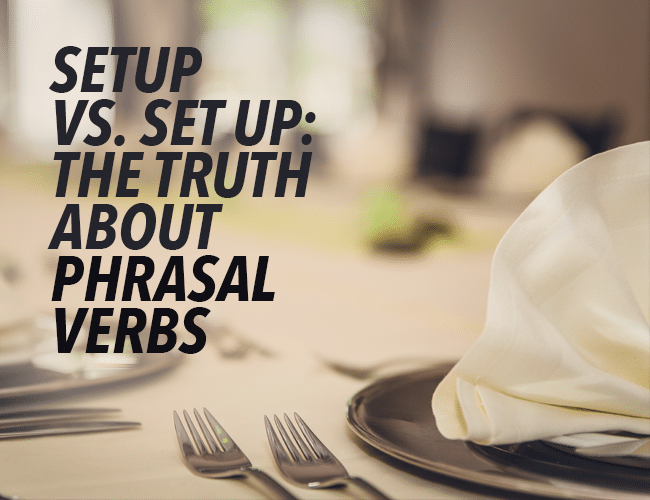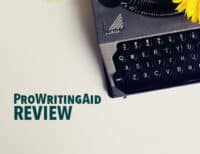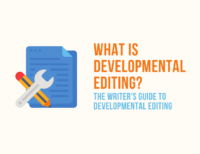Words in the English language are tricky things. They merge and morph, even little changes adding layers of new meaning. Don't believe me? Here's an area I see lots of people getting tripped up: phrasal verbs, like setup vs. set up. Are they one word or two? And does it even matter?

Actually, it’s both, and yes, it does matter. Let’s take a look at why, shall we?
The Power of Phrasal Verbs
What’s a phrasal verb? I’m glad you asked.
It usually includes a verb, like “set,” and a preposition, like “up.” Together, the two words mean something completely different from “set” alone.
Johnny set the table with knives and forks.
Sally set up a display of spring sandals at the shoe store.
Not convinced phrasal verbs make a difference? Let’s play around with “break” and see what phrasal verbs it can make.
According to Merriam-Webster, “to break” is to separate into parts with suddenness or violence. All the phrasal verbs that follow are variations on that theme—but they also have distinct meanings. (In fact, they all have several meanings, but I’ll give just one of each here.)
To break down is to stop functioning because of breakage or wear, like a car breaking down on the highway.
To break up is to end a romance.
To break in is to enter something (as a building or computer system) without consent or by force.
To break out is to make a break from a restraining condition or situation.
Sure, you could just stick with “to break,” but you’d lose the distinct meaning of each of these phrases.
And let’s take one more you’ve probably seen before: to work versus to work out.
To work is to toil or labor. To work out is to exercise. Sure, that might also feel like toil and labor, but it’s a specific kind of toil for a specific purpose.
All right, so we’ve got the two-word phrases down. But what about “setup”? When do these phrases become one word?
Phrasal Verbs in Noun or Adjective Form
Many phrasal words can be transformed into nouns or adjectives. When that happens, they’re written as one word.
Let’s go back to set up vs. set up. To set up is the verbal phrase, and setup is its noun form.
Sally set up an elaborate display of sandals. She hoped customers would find her setup appealing and buy more shoes.
The same is true for most of our break examples:
Evelyn took her car to the shop to prevent a breakdown.
Lily and Tim’s breakup was sad, but amicable.
There’s been a breakout at the jail, and three prisoners escaped.
Breakdown, breakup, and breakout are all nouns.
Phrasal verbs can transform into one-word adjectives, too. Here’s one you might have seen before:
Henry will log in to Facebook using his login information.
To log in is the phrasal verb. Login is its adjective form.
It’s simply not possible to login to Facebook—you must log in.
Phrases That Look Like Phrasal Verbs
Beware—not every set of verbs and prepositions is a true phrasal verb. Some common English phrases are actually redundancies.
To stand up—where else are you going to stand?
To sit down—where else are you going to sit?
To write down—you know what I’m going to ask.
To climb up—I won’t even say it.
Without the prepositions, each verb would mean the same thing. To stand up and to stand are no different; neither are to climb up and to climb. Since the prepositions aren’t necessary to the meanings, these aren’t phrasal verbs.
Interestingly enough, if you used different prepositions, these would become phrasal verbs. To stand down, to sit up, to write up, and to climb down each have unique meanings. For instance, while to stand means to rise to one’s feet, to stand down means to withdraw.
How to Avoid Phrasal Verbs
Do you have to use phrasal verbs? Not always. Many phrasal verbs have single-word synonyms. For example, try these substitutes for the verbal phrases below:
To work out → to exercise
To blow up → to explode
To set up → to arrange
In formal writing, you might want to use the single-word substitutes. In informal writing, though, the verbal phrases can capture a casual, conversational tone.
Keep Your Eye out for Phrasal Verbs
Whether it’s workout vs. work out, setup vs. set up, or login vs. log in, remember they’re always two words when used as a verb. If they’re a noun or adjective, remove that space and make them one word.
Now that you know what to look for, keep an eye out for the phrasal verbs all around you. They may seem designed to trip you up, but with some practice, they’ll be easy to spot.
Do you find phrasal verbs useful or tricky? Let us know in the comments.
PRACTICE
Set up, break down, log in, work out. Take fifteen minutes to write a story about a person who is frustrated because a computer program isn’t working. Use as many phrasal verbs—and their noun and adjective counterparts—as you can fit.
When you’re done, share your writing in the Pro Practice Workshop, and be sure to leave feedback for a few of you fellow writers!







Well, I never really thought up issues about phrasal verbs that I write out while I am pontificating upon paper or electronic device. I do note that on occasion my face screws up in contemplation while I ponder a pedagogical phrase to put down but seldom do I then attempt to un-think what I thought up. I have found that thinking about some such as having to go pee, once thought, some things just simply cannot be unthunk.
Ha, it’s probably preferable you have no penchant for pondering phrasal verbs while pontificating upon paper. It’s best saved for persnickety proofreading—postponed until after the bathroom break!
Wow. I really didn’t know the difference. Now I know. And, I’m glad. I want to avoid these. This is driving me crazy. But, if I do, I will be careful and refer to this article. It was very helpful. Thank you.
You’re not alone in not knowing the difference—many, many people don’t notice this little quirk of grammar. It takes some getting used to, especially since many of the examples we stumble across in the real world are actually incorrect. With some practice, though, you’ll get the hang of it!
When you write down an asset, you decrease its nominal value. Doesn’t that make “to write down” a phrasal verb?
You’re right, Tamyka! I wasn’t familiar with writing down an asset, but that absolutely makes “write down” a phrasal verb. Ultimately, it depends on usage: in the sentence “Mom wrote down her grocery list on a piece of paper,” “wrote down” is a redundancy. But in terms of accounting, it has a specific meaning, and so it becomes a phrasal verb. Thanks for pointing that out!
Funny as i just had a question about runaway in my ms. MS Word wanted to put a dash between run- away, but now i know I’m using it as a noun. Thanks for this.
You’re welcome, Alice! And you’re right—spell checkers often don’t account for this nuance of language, and they’ll want you to split or combine words when you actually wrote them correctly. They’re helpful tools, certainly, but this is one reason why it’s so important to develop a solid basis in grammar for yourself, too. I’m glad this could help answer your question!
Thanks for your sharing! The information your share is very useful to me and many people are looking for them just like me! Thank you! I hope you have many useful articles to share with everyone!
fblogin
She couldn’t “copy and paste.” She tried it the way she had always done it before, but “copy and paste,” just didn’t do it this time. If the “paste” didn’t even show up as a choice after she’d “copied,” for an obsessive ten times, she tried “cut and paste” for a total of 20 times. No difference. She sent a message “Yikes! Help!” because the contest would be over in three hours and if her submission wasn’t there by that time, well, tough luck. Describing her problem on the space for questions, etc., she sent off the e-mail to whom knows whom. Maybe an administrator or a passing security guard or office cleaner might see it on a computer left on.
“We got your message!” She receives this message 15 minutes later. What does that mean time-wise? A few minutes, a hour, today, twenty four hours, sometime? She is not a geek or even a coompetent person when it comes to technology. How could she possibly bone-
up on cutting an pasting in an emergency like this?
She writes a message to the writing community, the ones who have already successfully submitted their stories and are now drinking alcohol and smoking in the cafe. Magic! One of the writers responds with suggestions. She tries again. Nope! Doesn work. She writes back, “This is what I did and it didn’t help”
“Did you do this?” he asks and lists 4 steps for her to follow. She tries it. It works. Three hours before the submission deadline, she has succeeded with the help of Gary G Little!
Thanks, Gary!
AL Botsford
Oh dear, what a harrowing story! I’m glad the story was successfully submitted in the end. Nice use of phrasal verbs, too!
Wow I am the worlds worse about using those. I always wonder about myself when I go back to edit like what the heck make me do that so much…
The article you have shared here very good. This is really interesting information for me. Thanks for sharing!
hotmail.com login |hotmail login |gmail login
Thanks for sharing this great. Keep sharing more useful and conspicuous stuff like this. Thank you so much
192.168.l.l
The article you have shared here very good. This is really interesting information for me. Thanks for sharing!
hotmail.com login |hotmail login |gmail login